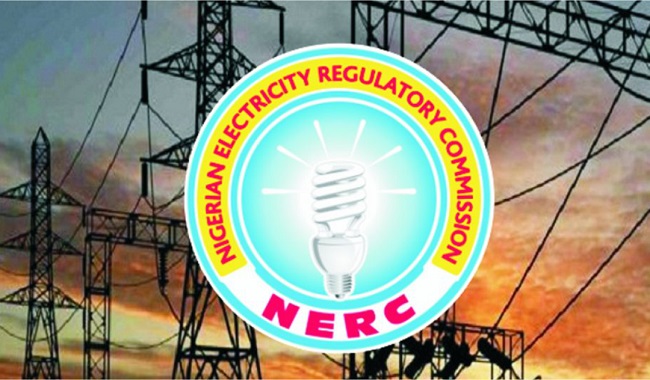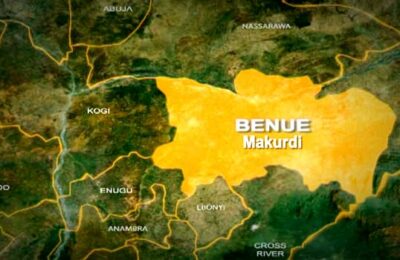The House of Representatives on Tuesday unveiled plans to investigate the revenue generated by the Nigerian Electricity Regulatory Commission (NERC) and the Securities and Exchange Commission (SEC) to ascertain their compliance with extant financial regulations and the provisions of the 1999 Constitution (as amended).

The Chairman of the House Committee on Finance, Hon. Abiodun Faleke, disclosed this during the review of the 2024 budget performance of key revenue-generating agencies, including the Infrastructure Concession Regulatory Agency (ICRC) and the Nigeria Sugar Development Commission (NSDC), among others.
Unsatisfied with the documents presented to the Committee, Hon. Faleke set up an Adhoc Committee to analyze the budget performance of the Securities and Exchange Commission.
Similarly, after a presentation by ICRC Director of Infrastructure, Shehu Sani Danmusa, who represented the Director General, Dr. Jobson Ewalefoh, the Committee directed the ICRC management to provide details of all concessionaires and the fees charged since 2008.
Hon. Faleke and other Committee members, who identified discrepancies in the presentation—especially regarding the breakdown of revenue and expenditures—stressed the need for the agency to present comprehensive details as required by standard accounting and financial practices.
ALSO READ: NAUS demands sack of TCN, NERC MDs over power outage in campuses
In his submission, NERC Chairman Mr. Sanusi Garba presented the agency’s income and expenditure for 2023 and 2024, stating that the main source of revenue for the agency is the electricity market.
He said, “The law provides that we prepare a budget and take just enough from the electricity market to fund our operation, meaning the amount we take from the market depends on the budget we prepare.
“So in the early days of the Commission, when the market was a little immature, the Commission was taking money from the market and federal appropriations.
“But in the last one, two, or three years, the Commission has been 100% dependent on the workings of the market for our revenues.”
However, Hon. Faleke interjected, questioning, “You take just enough? What is just enough? So how much do you take? We want to determine your revenue. When you say just enough, it’s not a figure.”
In response, the NERC Chairman argued that the Commission, as a regulatory institution, is not designed to be a revenue-generating agency.
Unsatisfied, Hon. Faleke, noting that the Commission was designated as a self-funded entity, asked, “Are there rules? Who is the DFA? Are you the DFA? Where is the DFA? Are there rules guiding self-funded agencies in terms of deductions and remittances?”
The NERC Director of Finance and Administration confirmed that the law establishing the Commission provides that 80% of its operating surplus must be transferred to the consolidated revenue at the end of each fiscal year.
Still unsatisfied, Hon. Faleke questioned, “So how do we determine the operating surplus if we don’t know your income? It’s not that I don’t know. I’m just saying that you’re trying to hide it. Remember, you said you take just enough.
“So, that’s my area of concern. Why don’t we say—if you can give us the figure. For example, all of us sitting here operate in the same market.
“We are like your customers, but we are more or less directly your customers; we pay through your service providers.”
Following the presentation, the Committee directed NERC to submit all details of its revenues, expenditures, and invoices to industry players on energy purchases and reconciliations.
Similarly, the Committee raised concerns over the National Sugar Development Council’s (NSDC) expenditures on non-essential items such as foreign travels and office renovations while neglecting core responsibilities related to developing the sugar sector.
In his presentation, NSDC Director General Kamal Bakari explained that the organization is funded principally by the sugar levy and other revenues.
However, the DFA clarified that other revenues, including VAT and Withholding Tax, were remitted to the FIRS and receipted, with documents promised to the Committee.
A member of the Committee also criticized the Out-Grower Support Funds spent by the organization compared to sugar production outputs.
In response, Hon. Faleke highlighted the Committee’s concern with the Commission’s Internally Generated Revenue (IGR).
He emphasized that, given the Commission’s trajectory and activities, Nigeria lags significantly behind countries like Brazil, which cultivates millions of hectares through advanced agricultural mechanisms and utilizes all sugar by-products, including fuel production for vehicles.
The Committee directed the Commission to conduct due diligence and provide a more comprehensive record to assess its budget performance.







